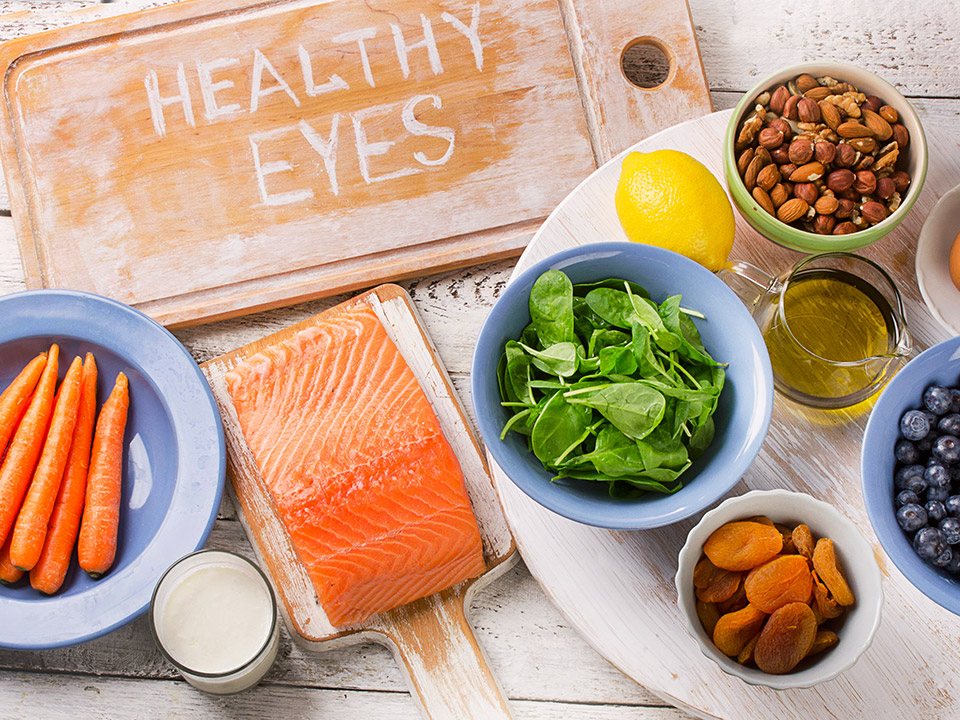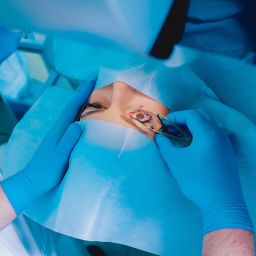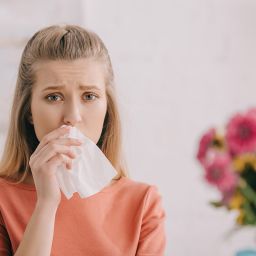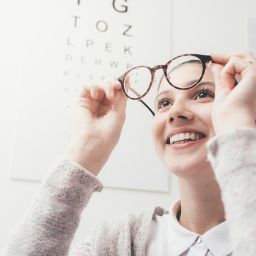Does Diet Affect Eye Vision And Health?
Most people eat with concern over their weight above everything else. Body health comes to mind first, along with weight, when people choose what to eat. Rarely do people think about their teeth or even their eyes when planning a diet.
“You are what you eat” has never been truer. Studies now confirm that what you eat can affect general eye health and vision. Certain nutrients play a significant role in maintaining your vision and good eye health, so a lack of them will harm the eyes.
It is essential to learn more about how your diet affects vision and eye health. It will help you make healthier choices for your eyes since preserving your eyes is the ultimate goal. Luckily, we have the information to help you right below.
Keep scrolling to learn the best and worst foods for your eyes. But first,
How does diet affect vision?
A 2013 Age-Related Eye Disease Study (AREDS) showed that nutrients, including lutein and zeaxanthin, are essential to eye health. These nutrients reduce the risk of getting chronic eye diseases. People who consumed more of these nutrients were at a lower risk of developing cataracts. Colored fruits and vegetables such as kale, broccoli, tangerines, and peas contain these nutrients.
Similarly, it is well proven that omega-3 fatty acids, vitamins A and C, and zinc can lower the risk of developing prevalent eye conditions such as macular degeneration and cataracts. Older adults who ate more of these nutrients were less likely to develop eye conditions.
Additionally, some studies show that vitamin C and E can reduce the risk of developing cataracts, especially when taken with other nutrients. Vitamin C slows the progression of age-related eye diseases and visual acuity loss. On the other hand, Vitamin E protects the eyes from free radicals, preventing tissue damage in the eye.
The Annals of Internal Medicine published a 2019 story in their journal about a 17-year old boy who went blind due to his diet. He only ate fries, chips, white bread, and processed ham slices and sausage. Studies into his case revealed a significant lack of vitamin B12. B12 is necessary for healthy cells in the body. He sustained damage to the optic nerve, which made him blind.
Worst Food For Your Eyes
So there you go; substantial scientific evidence that you have to maintain a proper diet to ensure your vision remains intact or at least does not degenerate as fast. If you want to preserve your vision and eye health, there are certain foods you need to avoid or limit.
The worst food for your eyes are:
1. Sugar
Too much sugar intake will increase the chances of developing diabetes. Diabetes causes a host of symptoms and problems in the body. One of the lesser-known connections is to the eyes. Diabetes causes diabetic retinopathy and age-related macular degeneration (AMD). Therefore, avoid or limit sugar intake.
2. White bread and pasta
Simple carbs like bread and pasta have shown to lead to vision loss in older adults due to age-related macular degeneration. The body digests this type of carbohydrate quickly, making your blood sugar rise. Therefore, consider replacing these options with whole-grain variations.
3. Margarine
Some margarine has trans fats, which raise your cholesterol levels. This increases the chances of developing heart disease and eye-related problems. More solid kinds of margarine have many trans fats, so go for the spreads and liquids. Alternatively, you could avoid it and seek healthier alternatives.
4. Deep-fried foods
Most of us love deep-fried potatoes, chicken, and other foods. But they are generally unhealthy for the body and your eyes too. Deep-fried foods have many trans fats, which raise cholesterol levels and increase the risk of diabetes and heart disease. It also triggers the creation of free radicals that kill body tissues.
5. Alcohol
Studies have shown that too much alcohol intake will trigger symptoms of cataracts, even at an early age. Younger people who drink excessively will likely develop cataracts characterized by cloudiness in the eye lens. Therefore, quit alcohol or limit your intake significantly.
6. Canned goods
And finally, nothing processed is good for your body, especially canned foods. Prepacked foods have high amounts of sodium which increases blood pressure and triggers eye-related problems. Look for low salt or low sodium options if you must buy canned foods. Add natural spices to get a better flavor.
Great Foods For Your Eyes
So what should you eat instead? Well, there are many foods you should incorporate into your diet. These include:
1. Nuts
Nuts and sunflower seeds have half the amount of vitamin E adults need per day. Vitamin E significantly helps with preventing eye diseases and slowing progression. Therefore, get a daily nut or sunflower seed intake into your diet.
2. Legumes
Legumes have a high concentration of zinc. Zinc slows down AMD, preserving your eyesight for longer. Eat more beans, chickpeas, lentils, black beans, and kidney beans. They will also provide you with more fiber for a filling meal.
3. Vegetables
Many dark green vegetables have the necessary nutrients for keeping your eyes healthy. Kale and spinach have a lot of vitamin C and E. They also have carotenoids lutein and zeaxanthin, plant-based forms of vitamin A to lower the chances of AMD.
4. Squash
Eat more squash if you want a daily dose of lutein and zeaxanthin. The body does not produce these naturally, but you can get enough from squash. It also has a lot of zinc, vitamin C, and omega-3 fatty acids.
5. Red peppers
These vegetables have vitamin C, the most per calorie. It serves blood vessels in your eyes, significantly reducing developing cataracts. Just be sure to eat them raw since heat breaks down the vitamin.
6. Lean meats
Lean meats have zinc which transports vitamin A from your liver to your retina to create a protective pigment. Eat more beef, pork, and chicken prepared healthily.
7. Sweet potatoes
And lastly, sweet potatoes contain high amounts of beta-carotene, a type of vitamin A that significantly improves vision and protects the eyes. Sweet potatoes also have a lot of vitamin C and E.












